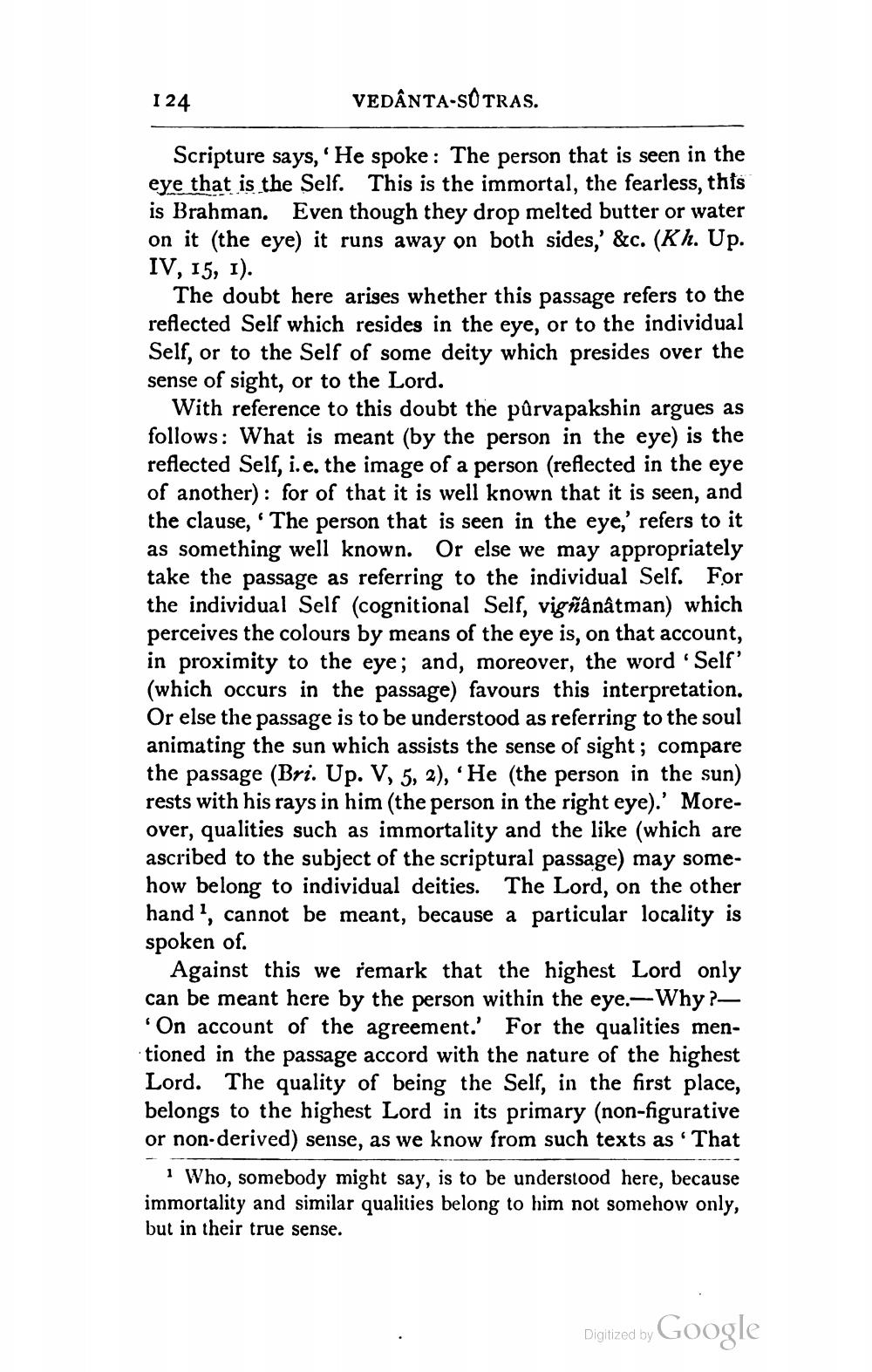________________
124
VEDÂNTA-SOTRAS.
Scripture says, 'He spoke : The person that is seen in the eye that is the Self. This is the immortal, the fearless, this is Brahman. Even though they drop melted butter or water on it (the eye) it runs away on both sides,' &c. (Kh. Up. IV, 15, 1).
The doubt here arises whether this passage refers to the reflected Self which resides in the eye, or to the individual Self, or to the Self of some deity which presides over the sense of sight, or to the Lord.
With reference to this doubt the pûrvapakshin argues as follows: What is meant (by the person in the eye) is the reflected Self, i.e. the image of a person (reflected in the eye of another): for of that it is well known that it is seen, and the clause, . The person that is seen in the eye,' refers to it as something well known. Or else we may appropriately take the passage as referring to the individual Self. For the individual Self (cognitional Self, vigñânâtman) which perceives the colours by means of the eye is, on that account, in proximity to the eye; and, moreover, the word 'Self' (which occurs in the passage) favours this interpretation. Or else the passage is to be understood as referring to the soul animating the sun which assists the sense of sight; compare the passage (Bri. Up. V, 5, 2), 'He (the person in the sun) rests with his rays in him (the person in the right eye).' Moreover, qualities such as immortality and the like (which are ascribed to the subject of the scriptural passage) may somehow belong to individual deities. The Lord, on the other hand?, cannot be meant, because a particular locality is spoken of.
Against this we remark that the highest Lord only can be meant here by the person within the eye.- Why?'On account of the agreement.' For the qualities mentioned in the passage accord with the nature of the highest Lord. The quality of being the Self, in the first place, belongs to the highest Lord in its primary (non-figurative or non-derived) sense, as we know from such texts as 'That
1 Who, somebody might say, is to be understood here, because immortality and similar qualities belong to him not somehow only, but in their true sense.
Digized by Google




